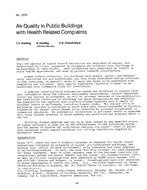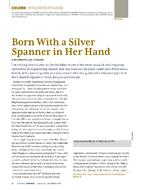Sea water-cooled chilled water plants have been popular in Hong Kong and have been preferred for district cooling systems. This is generally recommended by policymakers and consultancies as a more energy-efficient option than cooling tower-equipped chiller plants. Often district cooling and sea water cooling (including lake water) is discussed synonymously as usually district cooling plants are large and generally only large plants are worth the hassle of sea water cooling.
The argument of district cooling systems has always been the ability to concentrate capital to deploy better performing technology and the centralization of equipment to allow for maintenance and operation. All of this is supposed to make the plant more efficient, and these arguments may not be as true nowadays and there is an engineer’s bias to build bigger and more complicated systems.
Product Details
- Published:
- 2022
- Number of Pages:
- 10
- Units of Measure:
- Dual
- File Size:
- 1 file , 1.4 MB
- Product Code(s):
- D-TO-22-C048
- Note:
- This product is unavailable in Russia, Belarus


